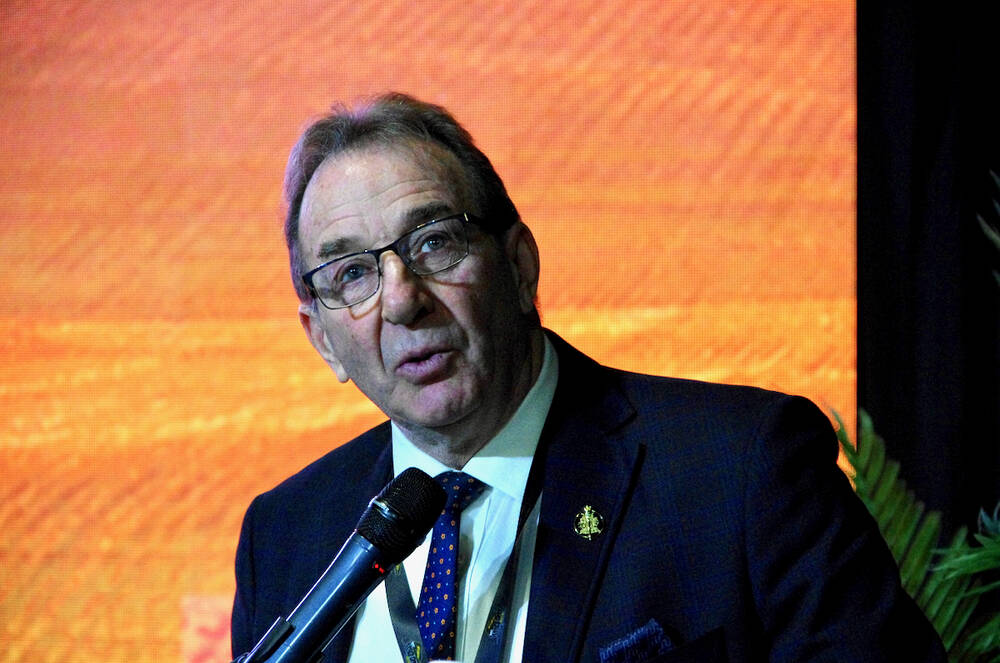Awidely reported funding reduction for agriculture in the province’s newly released budget is not what it seems, according to Keystone Agricultural Producers.
While $1 million less is being allotted to agriculture in 2016 than in 2015, president Dan Mazier said the reduced allocation has to do with lower payouts being made by farm insurance programs.
“So it was more of a savings to agriculture, not a reduction in funding,” he said. “It’s a good news story, but the way it was reported by some media outlets totally surprised me.”
Read Also

AgriStability enrolment deadline extended
The deadline for Manitoba farmers to enroll in the AgriStability business risk management program has been extended by three months agriculture minister Ron Kostyshyn announced on Friday.
He added that good production years, as well as new-found efficiencies within the Department of Agriculture, have also played a role in diminishing expenses. Overall, the general farm organization has been pleased with the Progressive Conservatives’ first budget, he said.
“We are generally happy because there were no big cuts,” Mazier said. “There was nothing new, but there was nothing taken out either.”
There has been a slight bump to funding for agricultural research and innovation, something that had been a key demand for producers at the organization’s annual general meeting earlier this year. Nearly $60,000 in new funding is expected.
The organization has also requested to participate in the government’s red-tape reduction task force, an initiative that had been promised during the Tory’s election campaign and recommitted to in the budget. Mazier hopes the task force could be one avenue for the organization to address the issue of school taxes on farmland.
In 2013, the Farmland School Tax Rebate Program was capped, increasing the amount of school tax many farmers must pay.
“It’s a $7-million tax grab that is costing our industry and costing producers,” said Mazier, adding the ultimate goal is to have the tax removed entirely.
However, he acknowledges removing the tax won’t be simple given that eight more years of unbalanced budgets are expected and this year will see the province run a deficit of $890 million.
“We would love to see the tax taken off, but that will take more conversation — there is really no incentive for them to take it away because the books are in such a mess,” he said.
The budget also failed to address the government’s commitment to a province-wide Alternative Land Use Services program.
“We understand these are big expenditures that would not necessarily be addressed in the first budget, but we will lobby for these member priorities to be addressed in the future,” said Mazier.
A carbon pricing system was again committed to in last week’s budget, but no new details were provided on what that system might look like. Keystone Agricultural Producers will meet with Manitoba’s minister of sustainability in mid-June to discuss that and other issues.
“We already have an initiative underway to evaluate different carbon pricing systems both nationally and internationally,” Mazier said. “We want to help design a program that encourages mitigation of carbon emissions, without adding production costs and raising food prices.”
But after comparing the Tory’s election promises and first budget, Mazier said he feels things are lining up fairly neatly so far.
“I think we’re headed into a good space with this government,” he said. “We might not line up perfectly, but let’s work on the commonalities first and see what we can do.”



















